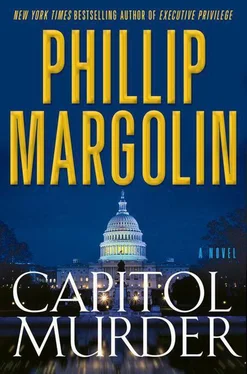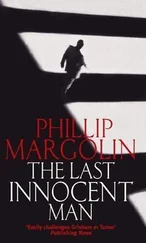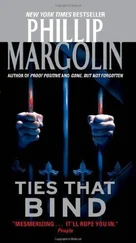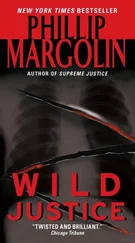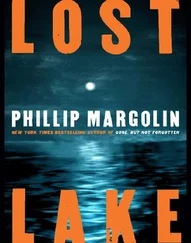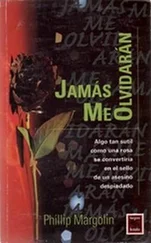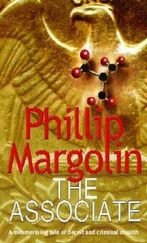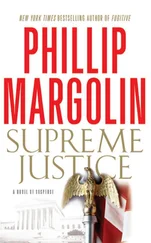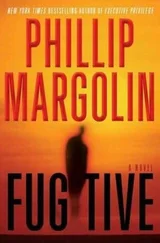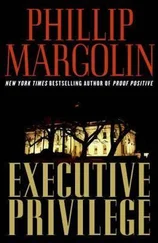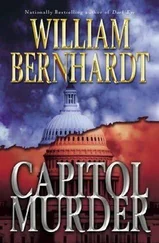Philip Margolin - Capitol murder
Здесь есть возможность читать онлайн «Philip Margolin - Capitol murder» весь текст электронной книги совершенно бесплатно (целиком полную версию без сокращений). В некоторых случаях можно слушать аудио, скачать через торрент в формате fb2 и присутствует краткое содержание. Жанр: Триллер, на английском языке. Описание произведения, (предисловие) а так же отзывы посетителей доступны на портале библиотеки ЛибКат.
- Название:Capitol murder
- Автор:
- Жанр:
- Год:неизвестен
- ISBN:нет данных
- Рейтинг книги:5 / 5. Голосов: 1
-
Избранное:Добавить в избранное
- Отзывы:
-
Ваша оценка:
- 100
- 1
- 2
- 3
- 4
- 5
Capitol murder: краткое содержание, описание и аннотация
Предлагаем к чтению аннотацию, описание, краткое содержание или предисловие (зависит от того, что написал сам автор книги «Capitol murder»). Если вы не нашли необходимую информацию о книге — напишите в комментариях, мы постараемся отыскать её.
Capitol murder — читать онлайн бесплатно полную книгу (весь текст) целиком
Ниже представлен текст книги, разбитый по страницам. Система сохранения места последней прочитанной страницы, позволяет с удобством читать онлайн бесплатно книгу «Capitol murder», без необходимости каждый раз заново искать на чём Вы остановились. Поставьте закладку, и сможете в любой момент перейти на страницу, на которой закончили чтение.
Интервал:
Закладка:
Ginny was also upset by Crawford’s attitude. A man’s life might literally be at stake. Crawford was treating the case as if it concerned only him and Bobby Schatz, but the case really revolved around the ability of the government to prove Tolliver’s guilt beyond a reasonable doubt. Ginny was appalled by laws that hid evidence and begged for an unjust result and by a prosecutor who treated a matter this serious as a game.
“C an he do that?” Dana asked when they were out of the building and headed back to Schatz’s office.
“Oh, yeah. The federal rules are barbaric. Most prosecutors don’t follow them to the letter, but under them we aren’t entitled to see the statements of a witness until after he testifies, which means you probably aren’t going to have any time to investigate before I cross.
“Then there’s the Federal Intelligence Surveillance Act. The government attorneys go to the FISA court, which is made up of federal judges. Their proceedings are secret, and it’s almost impossible for a defendant to find out the basis for the search or even that a search occurred unless they decide to use evidence they got using the warrant. And even then, there’s a declassification process that can prevent a defendant from ever knowing the real basis for the warrant.
“What’s worse, the government is allowed to conduct searches and wiretaps under FISA without satisfying the normal Fourth Amendment requirement of showing probable cause that a crime has been committed when it’s trying to get a warrant.
“On top of that you have CIPA, the Classified Information Procedures Act, which sets out procedures when a defendant wants discovery of evidence that’s classified. The defendant can’t get classified evidence unless a judge finds that it’s relevant, and the judge makes that finding in secret. If the government objects after a judge finds the evidence is relevant, the court enters a nondisclosure order and tries to figure out an appropriate sanction for the government’s failure to disclose the evidence it’s decided is relevant to defending the case. And even when there is no nondisclosure order, the defense attorney can only see the evidence if he has a security clearance, and the defense attorney is usually prohibited from showing the evidence to the defendant. If the judge decides that the defendant can see the evidence, he provides it in a sanitized form like a summary or a redacted document.”
“What about the government’s obligation to give the defense evidence in its possession that can clear him?” Dana asked.
“In the Moussaoui case, the defense wanted to interview terrorists who were detained in U.S. custody outside the country to develop witnesses who would testify that Moussaoui’s involvement with al-Qaeda was limited. The court wouldn’t let the defense interview the potential witnesses. The best they got were summaries of intelligence reports they would have been allowed to read to the jury if the case had gone to trial.
“The whole thing stinks to high heaven, but our client is caught up in post-9/11 hysteria, and that gives a guy like Crawford an opportunity to trample on his rights that he’d never have if Tolliver were charged with bank robbery.”
“What are you going to do?” Dana asked.
Schatz shrugged. “I’ll scream and holler and file motions and hope that Crawford gets overconfident and screws up.”
Chapter Thirty-nine
The next morning, Ginny arrived at the DOJ bright and early. She was taking off her coat when Terrence Crawford pushed a multitiered cart into her office. Ginny was surprised to see her boss doing a job that would normally be assigned to a secretary.
“Great news,” Crawford said. “I was able to rush through your security clearance, which means you are now able to organize these top-secret files.”
Crawford scanned the office. When he spotted Ginny’s hole punch, he grinned maliciously.
“Good, good,” he said. “You’ve got a hole punch and I’ve provided you with binders and tabs. When you’ve got the case file organized, bring it to my office. Say by tomorrow afternoon.”
“Tomorrow, but…”
“No buts. There’s a team of lawyers waiting for this material. I imagine this job will evoke fond memories of your days at Rankin, Lusk-the all-nighters, the Saturdays and Sundays at the office when normal people were at the beach or lying around at home doing the Times crossword.
“Well, enough of this idle chatter. I’m taking up valuable time.”
Crawford sped away before Ginny could protest any further. She was appalled by the joy he seemed to take in her discomfort. What a prick! She wondered if Crawford had any redeeming qualities. She sure couldn’t think of even one.
Ginny walked over to the cart. Its three shelves were loaded down with banker’s boxes. In addition to the boxes, three-ring binders were stacked on the bottom shelf. Ginny counted twenty boxes in all. She lifted the cover of one of them. It was filled to the top with paper. She groaned. This was going to take forever; only she did not have forever, she had until the next afternoon.
The first thought that sprang into her head was coffee. She was going to need a lot of it. On the way down to the basement cafeteria, something occurred to her. Security clearances had been discussed by Ginny’s coworkers on a few occasions, and Ginny had the impression that they took a while to get. On the day Crawford moved her over to Counterterrorism, he had mentioned that he was going to try to expedite the process, but he seemed to have pushed her clearance through in record time. She wondered why.
Ginny filled a thermos to the top with coffee and carried it back to her office. Just thinking about the daunting task she was facing was exhausting. She poured out a cup of caffeine and took a stiff drink. Then she carried the first box to her desk and pulled a stack of paper out of it so she could see what she was dealing with. It didn’t take her long to realize that she was looking at 302s-the FBI equivalent of a police report-in the FedEx case. She was still pissed off at Crawford but not as pissed off as she had been. Working at Justice might not pay as much as Rankin, Lusk, but no one at Rankin, Lusk would have the inside scoop on one of the biggest terror cases in American history.
Ginny read the first report. It was an interview with a person who worked at a concession stand at the football stadium. The interview concerned a fellow worker, but the name of the subject in whom the interviewer was interested was redacted. Ginny flipped through a few of the other reports. Names and other information-like an address in one case-were also blacked out. News stories on television and in the papers had reported that hawkers for several concessions were believed to be suicide bombers who were arrested before they were able to detonate their bombs. Ginny assumed that the terrorists were being held at a secret prison somewhere. She wondered what that would be like and she shuddered. She had read stories about waterboarding, and she’d seen the pictures from Abu Ghraib prison. She was certain that she couldn’t stand up under that type of pressure. Something else about the prisoners being held at a secret prison bothered her, only she couldn’t put her finger on it, so she got back to work.
A lot of the 302s in the first two boxes recounted interviews with people who worked at concession stands at FedEx Field. Ginny built a tower out of these reports on a corner of her desk. She would put them in a binder in alphabetical order when she had collected all of these interviews and the reports that concerned them.
Ginny was reading a report of an interview with a woman named Ann O’Hearn when she noticed that Keith Evans and Maggie Sparks were the agents who had conducted the interview. She smiled. It made this tedious work easier when she could connect with someone involved in the investigation.
Читать дальшеИнтервал:
Закладка:
Похожие книги на «Capitol murder»
Представляем Вашему вниманию похожие книги на «Capitol murder» списком для выбора. Мы отобрали схожую по названию и смыслу литературу в надежде предоставить читателям больше вариантов отыскать новые, интересные, ещё непрочитанные произведения.
Обсуждение, отзывы о книге «Capitol murder» и просто собственные мнения читателей. Оставьте ваши комментарии, напишите, что Вы думаете о произведении, его смысле или главных героях. Укажите что конкретно понравилось, а что нет, и почему Вы так считаете.
